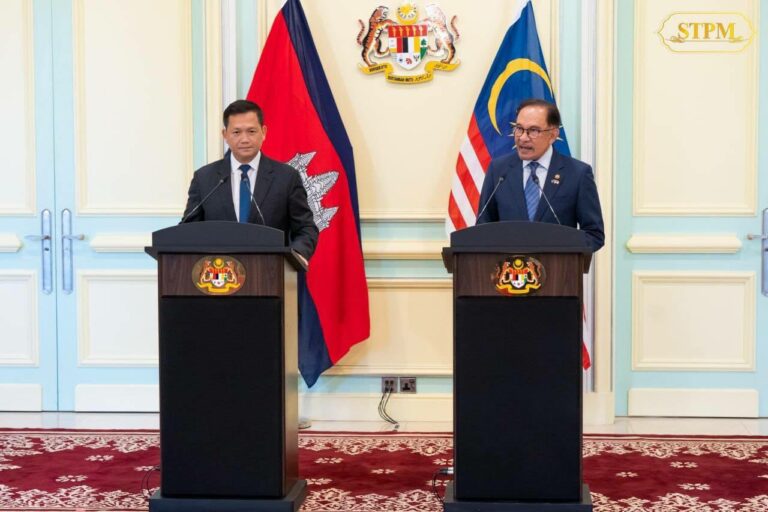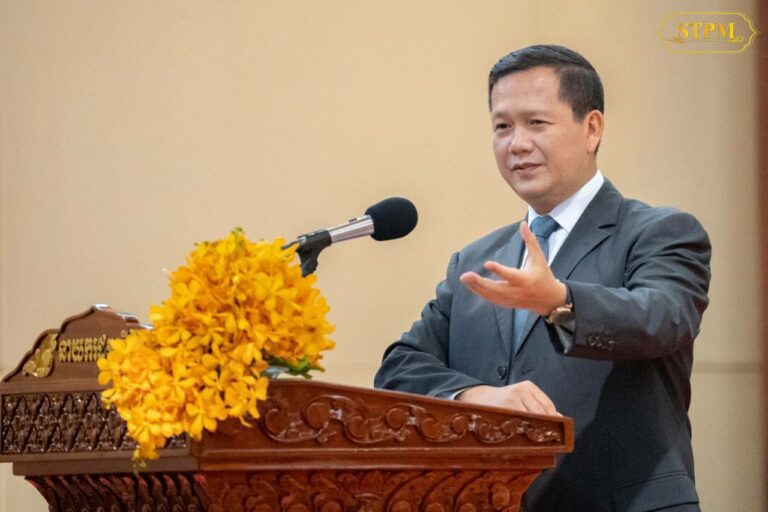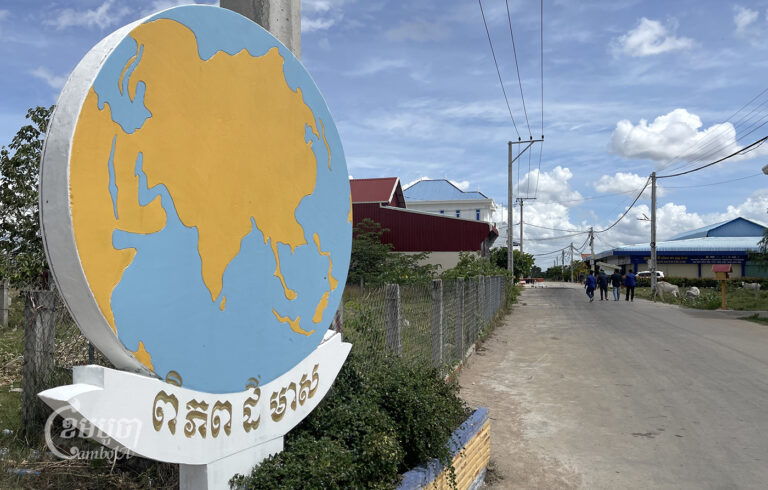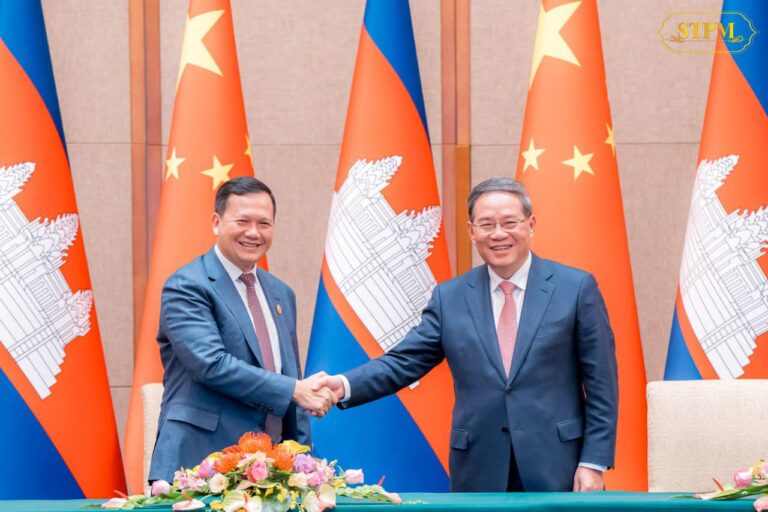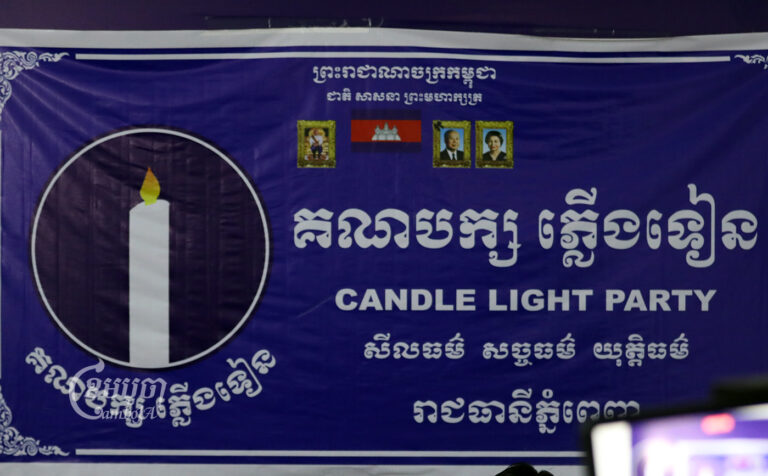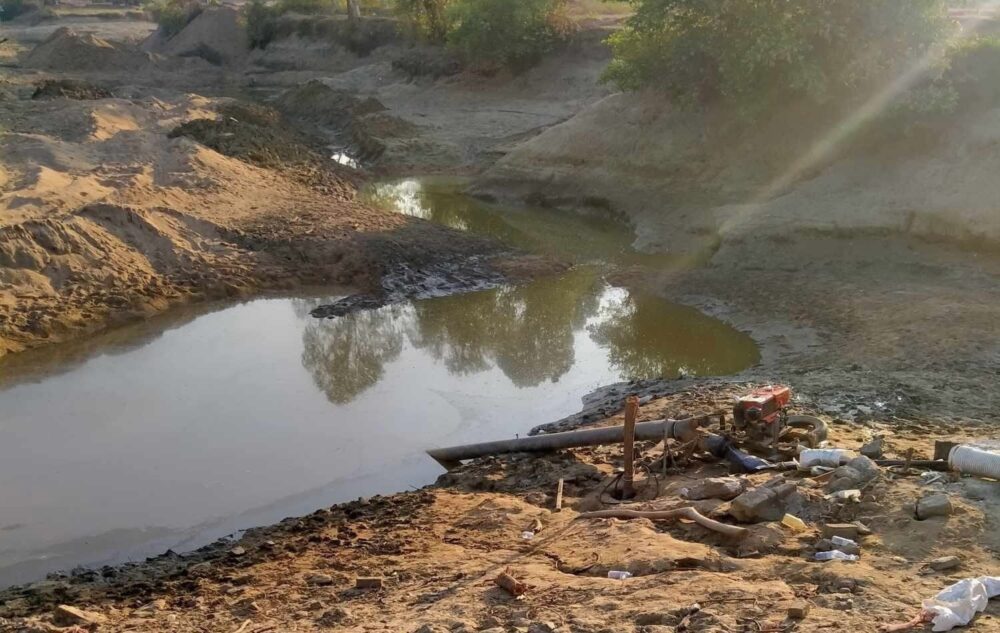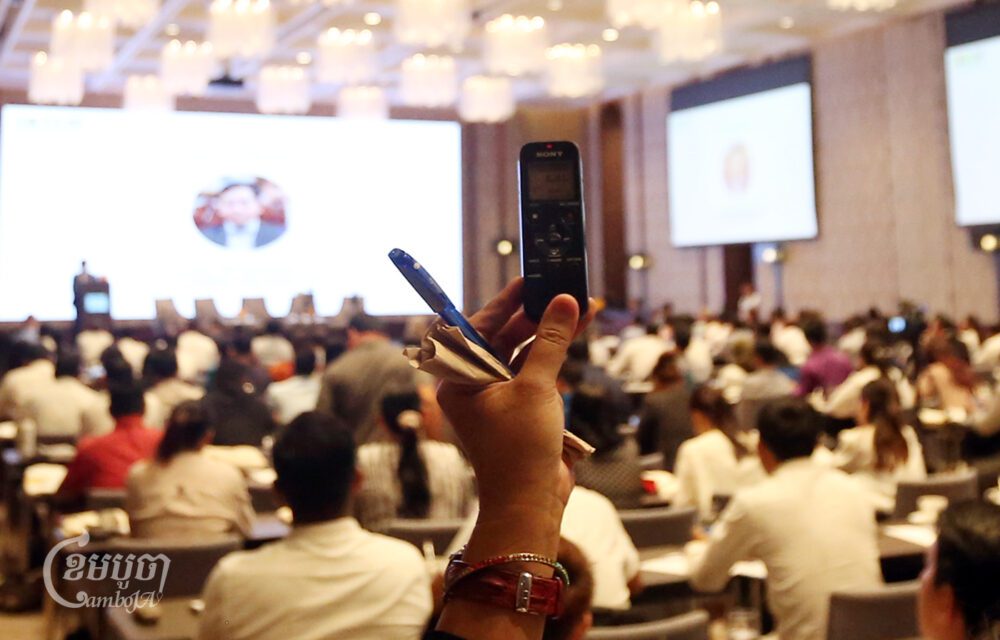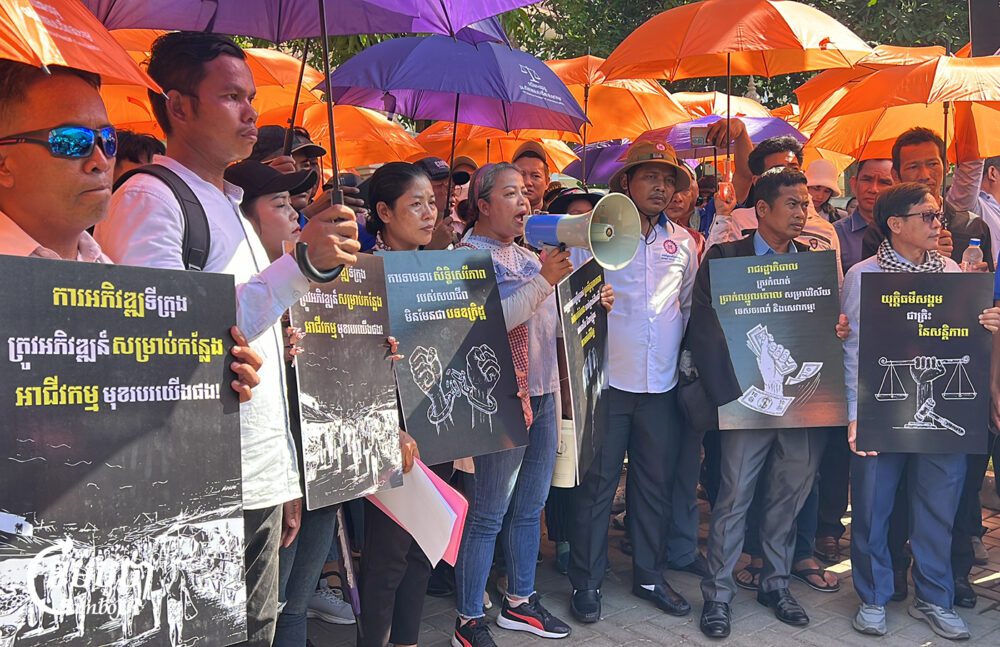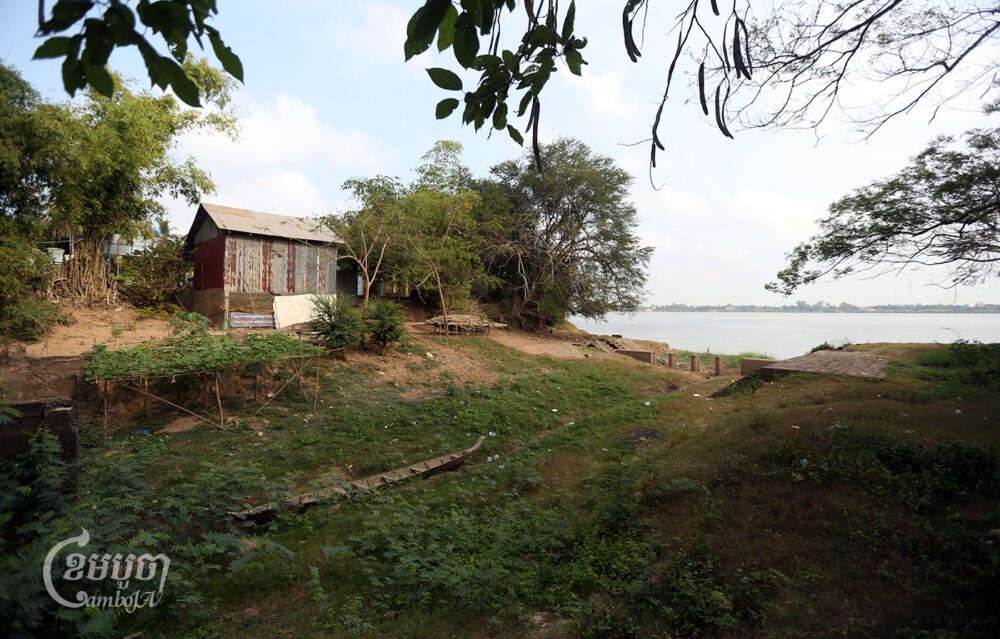It started off small for Noun Noeut, a 60-year old father from Battambang. He invested $5,000 in the land investment company Brilliant City World. But he said his nephew, an employee of the company, urged him to invest even more. With the company promising Noeut interest on his investment every month, he started collecting money from his children and taking out bank loans, ultimately handing over $55,000.
“If I didn’t have [someone] who came to take the money from me, I would not have invested it,” he said. “The company was gathering it up and was persuasive.”
The owner of the company, tycoon Leng Channa, was arrested last month on fraud charges. At least four others have been arrested in connection with the alleged scam, with over 20 summoned to appear in court for questioning. According to Sothyta Ret, a representative of the Brilliant City World scam victims, Channa swindled over 2,800 people out of more than $200 million.
Noeut has little hope now of getting his money back.
“I just want my principal back, I do not want any interest, I just ask for my principal,” he said.
Fraud scandals involving prominent Cambodian elites have made national headlines in the last year, with hundreds of families filing complaints in an alleged land fraud case against tycoon Hy Kimhong. And while online scams often target individuals from wealthier nations, Cambodians are also facing losses from cyber scams, leading to debt accumulation and negative impacts on the national economy.
But some experts see the recent fraud charges and police raids of scam compounds as superficial measures, with government corruption and a lack of accountability allowing investment frauds and online scams to persist in Cambodia.

Victims cheated by Brilliant City gather in front of Siem Reap Provincial Court to seek a solution on April 11, 2024. (Supplied)
Losses to Investment Fraud
The Brilliant City scandal is just one of a series of alleged investment frauds in the country. Investors in a fund managed by Cambodian Investors Corporation (CIC) have accused the company of defrauding customers out of millions of dollars. CIC raised about $100 million in membership fees but failed to provide interest payments and allow withdrawals of the principal starting in August 2023.
Last month prominent businessman Mengly Quach stated on Facebook that he had lost nearly $300,000 in investments. Customers have urged authorities to investigate the matter and take appropriate action against the company’s management. The Ministry of Interior has encouraged those who believe they have been victimized by CIC to file a complaint with the relevant authorities.
Real estate schemes led to major losses from Cambodian investors last year as well. Tycoon Chea Saran allegedly deceived over 2,000 families in Kampot province, amassing fraudulent gains of $40 million. The real estate tycoon was charged with aggravated fraud.
In a similar scheme, Kimhong’s Piphup Deimeas Investment allegedly swindled some 2,000 families out of millions. He was arrested in August on fraud charges, along with 13 bodyguards for alleged violence against law enforcement and obstructing the court’s arrest order. Kimhong was released on bail in November.
Customers were promised a percentage interest on plots of land purchased, and a guarantee that the company would repurchase the land at the same price at the end of 24 months. Many of the investors from middle and low-income farming families took out bank loans to invest in the company and are now forced to take desperate measures to repay debt.
Ma Sari said he lost a total $45,000 invested in two plots of land purchased through Piphup Deimeas Investment. He took out loans to make his investments, but when the company stopped paying him interest, he found himself unable to make his payments to the bank.
“The most challenging issue is the banking problem. It’s nearly impossible to earn enough money to pay back the bank now. Those who owe the bank are all facing difficulties,” he said.

Eav Ly of Kampot province said he took out a bank loan to buy a $20,000 plot of land, with a 3% interest return promised by Piphup Deimeas Investment. Ly said he received interest payments for the first 15 months, but hasn’t received anything since then and the principal has not been returned. He said it is difficult to earn even $430 a month living in the countryside and he cannot afford to pay his bank loans back.
Ly wondered why the company appeared to be operating with government approval. Business registration details for Piphup Deimeas Investment can be found on the Ministry of Commerce website.
“They’re legal. We decide to invest, and the company has the rights under the law. Why is it like that?” he said.
Chou Vannak, director general of the Real Estate Business and Pawnshop Regulator, said that the regulator studies companies in detail before issuing licenses, and monitors the operations of companies once licensed.
When a CamboJA News reporter pointed out that some of the recent fraud scandals involved licensed companies, Chou Vannak said, “The problems are only for unlicensed [companies], which is a serious problem. Licensed [companies] are monitored by regulators,” before saying he was busy and ending the call.
Land Management Ministry spokesperson Seng Loth did not answer questions sent by CamboJA News and referred questions to the Securities and Exchange Regulator of Cambodia. The regulator did not answer the phone when called by a CamboJA News reporter and did not respond to a WhatsApp message.
Am Sam Ath, operations director at the human rights NGO Licadho, said these fraud cases demonstrate weak oversight on the part of authorities, who issue licenses to companies but at times fail to properly monitor their operations.
“Even if the license is issued by the ministry, the relevant ministries and institutions must monitor the performance of each company,” he said. “If [these companies] are not monitored and implemented, the company just takes its license. That’s [a way] to cheat, to deceive the people.”
He added that some companies build trust from the public when they invite senior officials for company visits or launch events, giving the appearance of government support to attract more investors.
Hong Vannak, an economic researcher at the Royal Academy of Cambodia, said these investment scams impact Cambodia’s economy not just by defrauding Cambodians but also by discouraging foreign investment.
“Another impact is on foreign tourists who want to visit our country. They only hear about insecurity,” he said.
Vannak said authorities must further review the activities and financial records of licensed businesses to prevent frauds.
“Another point is corruption among the authorities or the judiciary, so that must be considered, because this affects our security, social order and foreign investment,” he added.

Locals Swindled by Online Scams
Aside from fraudulent investments, Cambodians are also losing money to online scams. Victims may be enticed to send money in exchange for promised rewards, to pay upfront for high-quality products at unusually low prices, or to accept loan offers where money is transferred quickly. Other schemes include romance scams and online games that require deposits.
Nguon Nheun, a 46-year-old construction worker from Kampong Chhnang, has fallen for small-scale online scams a few times. He lost out on $50 he paid upfront for an e-bike from an online seller who was unreachable after he sent the money.
“The second time, for another $80, this time in Kampong Som, [the seller] said that the bicycle had already been sent, but in the end, I still haven’t received it,” he said.
A Cambodian victim of online lending, who asked to remain anonymous, told CamboJA News that a lender contacted her by phone and later by Telegram. She borrowed $300 from the company, but after deducting fees, she received only $120. The company also placed high repayment fees on the loan. If she did not make her daily payment of $10, she was fined $50, and the company threatened to post the photos and ID cards of late payers on Facebook.
“We have been paying them for 15 days. I asked for a day off because I am unable to continue, but they said, ‘Didn’t you read the contract? We already have a contract, and if you miss a day, you’ll be fined $50.’ And they will post my picture [on Facebook],” she said.
The Cambodian government initially denied the growth of online scam operations in the country, but since 2022 it has repeatedly claimed to be clamping down on human trafficking and scam compounds. The US State Department gave Cambodia the lowest ranking possible in its Trafficking in Persons report in 2022 and 2023 for failing to meet the “minimum standards” for combating human trafficking.
Interior Ministry spokesperson Touch Sokhak told CamboJA News in March that the government has been working to crack down on scam operations and investigate reports from Cambodian citizens of suspected scams found on social media.
“Recently, in Sihanoukville, we have launched three crackdown operations, in which we have rescued more than 1,000 people, and are examining the procedures to determine how many perpetrators and how many victims are there,” he said.
But Jacob Daniel Sims, a visiting expert on transnational crime at the US Institute of Peace, said these recent crackdowns have not targeted the major known compounds, such as Victory Paradise, O’Smach, Jin Bei and Heng He.
“If you look back at other major criminal interests of the Cambodian ruling elite, ‘crackdowns’ have principally served a consolidating and monopolizing function — with less powerful, less connected cells being the ones most vulnerable to token crackdowns to alleviate international pressure,” he said. “What we are seeing in [Sihanoukville] at the moment falls clearly into this response pattern.”
In an interview with CamboJA News, Deputy National Police Chief Chea Pov repeated past government warnings to the public, saying people should spend less time on social media, avoid “unfamiliar” social media platforms, and “avoid coveting others’ possessions, as scammers often exploit desires for gambling or winning prizes.”
Sokhak echoed his comments, encouraging the public to learn about how to use social media effectively. He said the government has actively promoted this message to prevent people from falling victim to deceitful tactics through social media.
Mina Chiang, director of the Humanity Research Consultancy, said efforts to educate the public can be helpful but are not sufficient to address the problem of online scams.
“I think educating the public is good but not enough. I think stopping the criminal is more important than anything,” she said. “If we allow criminals to operate, they can always find vulnerable people to exploit.”
Sokhak claimed that scammers are targeting developing countries such as Cambodia that are less economically and technologically advanced, where “the people do not know much” and it is easier to carry out these crimes. In 2022, then Interior Minister Sar Kheng claimed that Cambodians “do not understand” the electronic gambling system utilized by scam operations.
“There is no evidence — or even logical coherence — that the intractability of this criminal industry in Cambodia is a result of its ‘high tech’ nature,” Sims said, adding that the challenge is political, not technological.
“It is well in the public domain precisely who owns the vast majority of these compounds and what is going on inside,” he stated.
Despite sustained local and international coverage of cyber scams operating in Cambodia and a UN estimate of 100,000 people forced to carry out online scams in the country, Sokhak claimed that “Cambodia is not a country that provides a place for offenders to commit cybercrime.”
Sokhak stated that Cambodia is suffering from a group of foreign online scammers, with Pov also stressing that most perpetrators were foreigners.
“Cambodians have never dared to do that [online scams] because we do not know how to do that,” Pov claimed.
But Sims said that the governments’ emphasis on scam operations being carried out by foreign actors “obscures the full picture.”
The “criminal masterminds” behind these operations are primarily foreigners from mainland China, he said, many of whom have purchased Cambodian citizenship and have significant influence over Cambodian government officials.
“They are foreigners, but they are operating in lock-step with powerful co-conspirators in the Cambodian government. And that’s why the ‘foreigner’ narrative here is an obfuscation,” he said.



